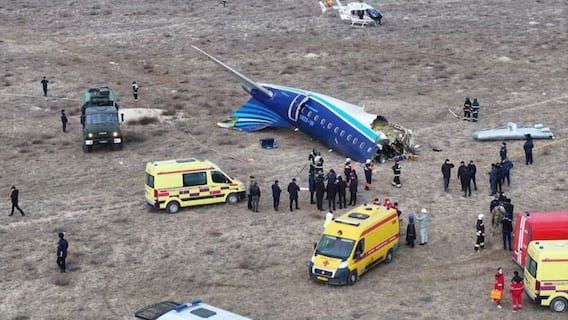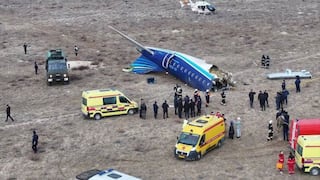Russian Prez Putin Advocates Production Of Banned Short And Intermediate-Range Missiles, Cites US Deployments
Russia will start producing nuclear-capable missiles in response to the US's deployment of similar missiles in Europe and Asia. This decision will effectively nullify the remaining vestiges of one of the Cold War's most pivotal arms control treaties

Russian President Vladimir Putin announced on Friday that Russia should recommence the production of intermediate and shorter-range nuclear-capable missiles, responding to the United States' deployment of similar missiles in Europe and Asia. This decision effectively nullifies the remaining vestiges of one of the Cold War's most pivotal arms control treaties, stirring fears of a potential new arms race involving the world's foremost nuclear powers, along with China.
"We need to respond to this and make decisions about what we will have to do in this direction next," Putin told Russia's Security Council, as broadcast on state television, as quoted by news agency Reuters. "Apparently, we need to start manufacturing these strike systems and then, based on the actual situation, make decisions about where – if necessary to ensure our safety – to place them," he added.
The Intermediate-Range Nuclear Forces (INF) Treaty, a landmark agreement signed in 1987 by Mikhail Gorbachev and Ronald Reagan, was the first accord where superpowers agreed to scale back their nuclear arsenals, eliminating an entire category of nuclear weapons. However, the United States, under former president Donald Trump, formally withdrew from the treaty in 2019, citing alleged violations by Moscow—an accusation the Kremlin has consistently denied and dismissed as a pretext.
Following the US withdrawal, Russia imposed a moratorium on developing missiles previously banned under the INF Treaty, specifically ground-based ballistic and cruise missiles with ranges between 500 km and 5,500 km. Putin emphasised that Russia had committed to not deploying such missiles, but the United States had restarted their production and deployed them for exercises in Denmark and the Philippines, Reuters reported.
Disintegration of Arms Control Treaties
Both Russia and the United States have expressed regret over the dissolution of numerous arms control treaties, which were initially designed to slow the Cold War arms race and mitigate the risk of nuclear conflict. In 2018, Trump announced his intention to terminate the INF Treaty, citing years of alleged Russian violations and concerns over China’s intermediate-range missile arsenal. Putin had previously warned that the US withdrawal could trigger a new arms race.
The United States attributed its departure from the INF Treaty to Russia's development of the 9M729 ground-launched cruise missile, known in NATO circles as the SSC-8. In response, Putin proposed a moratorium, suggesting that Russia could refrain from deploying such missiles in its Baltic coast exclave of Kaliningrad. Despite this, the US has since tested missiles with similar capabilities.
Earlier this month, Putin stated he could deploy conventional missiles capable of striking the United States and its European allies if they allowed Ukraine to use long-range Western weapons to target deeper into Russia. In his latest remarks, Putin did not specify potential deployment locations for these missiles.
Trending News
Top Headlines





































